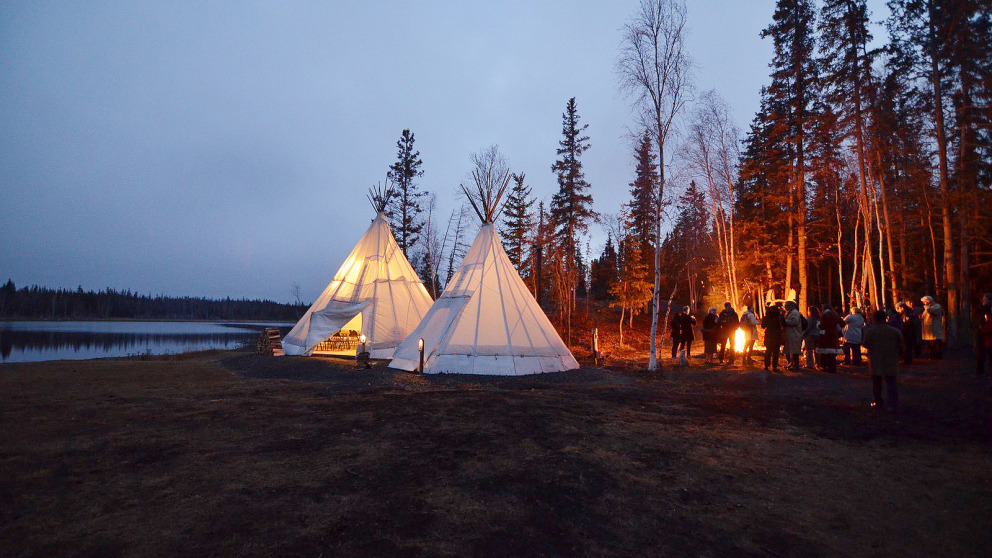The Arctic Council: Geopolitical Aspects and the Human Dimension – Opening Session of the Arctic Discussion Series
15.10.2014

A participant in the opening session of the new Arctic Discussion Series organised by the Canadian Embassy in Berlin, the Alfred Wegener Institute (AWI), the International Arctic Science Committee (IASC) and the Ecologic Institute hit the nail on the head with the statement ”the whole world is a stakeholder in the Arctic.” While this highlights the reciprocal environmental and climate effects between Arctic and non-Arctic regions, the countries bordering the Arctic play a particularly important role in the development of the Arctic region and they will continue to do so in future.

The event, which took place at the Canadian Embassy in Berlin on 13 October 2014, drew a mixed bag of experts and people with an interest in the Arctic, who all came to discuss the main political institution in the Arctic: the Arctic Council. This discussion focussed on the current Canadian chairmanship of the Council, which will continue until next year, and Germany’s function in this regard as a Council member with observer status. Germany’s overall role in the region was also explored.
After a short introduction to the theme of the evening by Deborah Paul, head of the Political Section of the Canadian Embassy in Berlin, the Canadian Ambassador to Norway David Sproule, and the head of the Northern Europe Department in the German Foreign Office Klaus Zillikens each gave a talk. Both talks addressed the issues of economic development in the far north, the guiding principles of German Arctic policy, the recognition of international agreements, the peaceful use and sustainable exploitation of the region, as well as shipping rights and the freedom to conduct research in the Arctic.
In the following audience discussion, questions were asked about the possible effects of the current Ukraine Crisis on the region and on cooperation within the Arctic Council, where Russia is a member alongside the seven other Arctic states (Denmark, Finland, Iceland, Canada, Norway, Sweden and the USA). As decisions in the Arctic Council are taken unanimously, further constructive cooperation with Russia is vitally important to the Council’s work. The delay in officially acknowledging the EU’s oberserver status in the Arctic Council was also discussed. This is partly due to the EU’s banning of imports of commercial seal products.
Initiated by the IASS and four other partners, the Arctic Discussion Series on current issues in relation to Arctic research and policies under Canada’s chairmanship of the Arctic Council is expected to continue until at least mid-2015. In the period from October 2014 to June 2015, the five cooperation partners will organise four events geared to experts and those interested in the Arctic with the participation of policy-makers, scientists, civil society actors, and media representatives. Beyond the Arctic Council and its geopolitical significance, the discussion series will also address the following issues: the Arctic marine ecosystem, economic development in the region and rising emissions, the participation of those affected by changes in the Arctic, and bridging the gap between research and policy.
Arne Riedel from the Ecologic Institute will organise the second discussion in the series in Berlin in early 2015. A third discussion is due to take place at the Canadian Embassy in Berlin towards the end of Canada’s chairmanship of the Arctic Council. This discussion is currently being prepared by the IASS researchers Dr Birgit Lode and Dr Kathrin Keil. The last discussion in the series, which will be organised by IASC Executive Secretary Dr Volker Rachold and Margarete Pauls from AWI, is due to take place in May 2015 at the latest on Telegraph Hill in Potsdam.
More Information:
- Concept Paper Arctic Discussion Series
- Further information on the work of the IASS on the Arctic can be found here.
- The guiding principles of Germany’s Arctic policy can be found here (in German).
Photo © Arctic Council